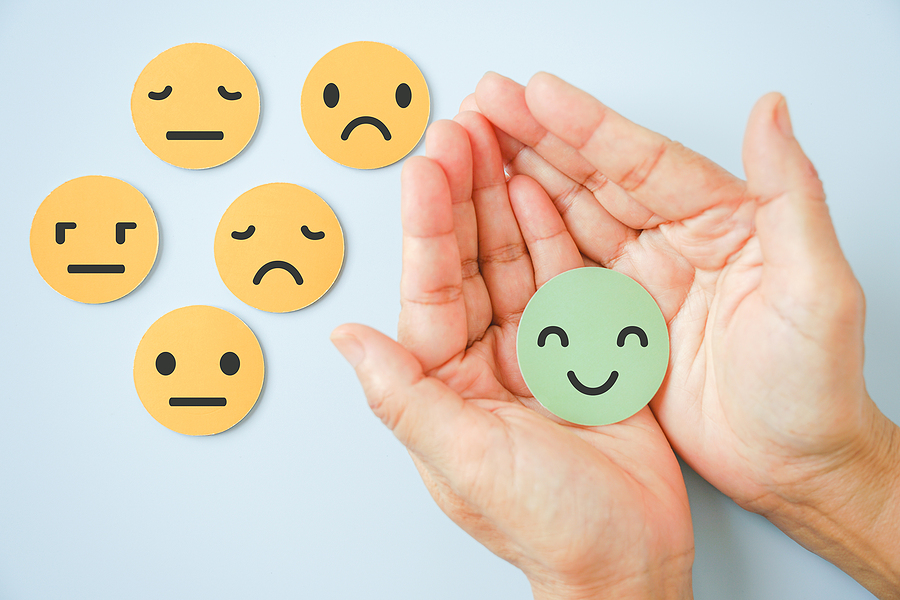Over the last year and a half, we have all had to adapt to changes in how and where we work. Many of us have done so while homeschooling children and caring for family members. Many more have had to grieve the loss of loved ones. And we have all felt firsthand the draining and detrimental effects of chronic stress on our mood and our health.
Thankfully, there is more to the story, and we are now starting to see countries, cities – and workplaces – take the first steps toward recovering from the pandemic. And while the pandemic’s devastating effects still reach far beyond the health aspects of the crisis, there is hope.
And there is awareness.
We are learning if we do not prioritize our wellbeing and mental health, we become vulnerable to stress and burnout, our physical health suffers, and we undermine those recovery efforts we so desperately need.
“(Those) who work to proactively prevent and manage burnout will be building stronger, healthier, more productive workforces into the future.”
– Gallup | The Wellbeing-Engagement Paradox of 2020
If you are noticing symptoms of stress and burnout in yourself and others, including exhaustion, irritability, and anxiety, here are 6 ways you can mitigate these feelings and prepare yourself for recovery.
1 – Prioritize sleep
We know we are more irritable and likely to conflict with others when we are tired, but we are also less equipped to manage stress. And chronic sleep deprivation leads to anxiety and depression.
When we sleep, our bodies do “repair work.” This crucial repair benefits our cognition and improves our mood by making it easier for us to focus, follow complex thoughts, and make decisions. Sleep even improves our memory by strengthening nerve connections. And ultimately, when we are well rested, we find more joy in our work and at home.
It’s time to make a habit of getting a good night’s sleep. Here are some tips to help you prioritize your sleep:
- Set a consistent bedtime
- Establish a wind-down routine, including no screens or blue light before bedtime
- Keep your room cool and dark
- Count your blessings instead of sheep! (More on gratitude below)
There is so much more to the science of sleep. We have dedicated a module to this topic, and others listed below, in our Wellbeing Reset Program, where we explore seven wellbeing habits, and give you the science behind practical strategies you can use to effectively incorporate these habits into your day. Each habit needs their own blog! We’ll be highlighting others in the coming months, including Exercise and Nutrition, not covered here.
2 – Practice mindfulness & meditation
Running from one stressful or overwhelming situation into another is tough. It’s easy to bring the negative energy from one event into another. Mindfulness and meditation improve our sense of calmness and physical relaxation by helping us focus on the present moment (or bringing us back to the moment) and enhancing our overall health and wellbeing.
Meditation teacher Sharon Salzberg offers this guidance: “The most important moment in your meditation practice is the moment you sit down to do it. Because right then you’re saying to yourself that you believe in change, you believe in caring for yourself, and you’re making it real. You’re not just holding some value like mindfulness or compassion in the abstract, but really making it real.”
If meditation still seems somewhat abstract for you, start small. Whenever possible, try to cue yourself to shift your mindset to the present situation. This may be as simple as taking a moment to write down what you need to revisit later before transitioning from one meeting to the next. Writing it down will help to clear your mind. Or your mindset shift may mean pausing to take a breath and be aware of your breathing.
I like this tip from mindful.org: Be kind to your wandering mind. Your mind will wander, just as your heart continues to beat. Don’t be harsh on yourself. If you find yourself lost in your thoughts – just come back.
3 – Reframe your thoughts
Our thoughts shape our reality. And the stories we tell ourselves have a profound impact on our circumstances. What stories are you telling yourself? How can you reframe these stories to create a more positive outcome for yourself?
Optimistic people typically have a growth mindset. They focus on strengths, and view challenges as opportunities to be embraced. Consider the power of your thoughts and the words you use and how your mindset may be improved by focusing on probabilities rather than possibilities. Yes, there will be challenges to address along the way, but you are more than capable of handling any challenges as they arise.
4 – Hit the pause button
We already know our brains are not equipped to multitask. So, it becomes all too easy for our brains to react, rather than respond, when we become singularly focused on a trigger. This type of auto-response is helpful when we truly are in a life-or-death situation and need to react quickly. But it becomes far less useful when it causes us unnecessary stress, or when it would be best to avoid saying something we may regret.
Google CEO, Sundar Pichai, views it this way, “More than the problem,” he says, “it’s my reaction to the problem that creates chaos.”
Instead of letting your temper flare and reacting immediately, take a four-second pause to see the outcome you want to get to. This will help you naturally respond to the need at hand, rather than the trigger itself. Directing your gaze upward and taking a deep breath will also help you to calm down.
Knowing how to respond to a need rather than react to a trigger is the first step to navigating any sort of challenge we encounter, whether it’s a difficult conversation or even a traumatic event. Learn more here.
5 – Stay connected
When we are surrounded by a strong network of friends, family and colleagues, there is no limit to what we can achieve. High-performance teams recognize the benefit of building strong relationships based on shared values and respect.
A strong network can challenge us, champion us, collaborate with us – and empathize with us. And we are equally capable of doing the same for our network. When we bring our best to those around us, our positive energy strengthens their own experience whether at work, home or in the coffee shop.
And while the emotions we bring to work are equally important as our cognitive skills, we always want to be authentic and true to ourselves. Sharing our positive energy does not mean we pretend everything is fine when it’s not. But being aware of our energy means we seek to demonstrate the best of ourselves and in turn, we help bring out the best in others.
6 – Practice gratitude
A daily gratitude practice has been shown to significantly increase happiness — and health. Studies have shown people with depression and anxiety were able to increase their positive feelings by writing gratitude letters. By taking the focus away from yourself and showing appreciation for how others add to your life, gratitude strengthens our relationships and simply makes us feel better. We are also more likely to exercise self-care practices because we are energized by our abundance mindset.
Find ways to spend more time thinking about what you appreciate, and your body (and mind) will benefit from your more relaxed, peaceful state of being. In short, “Gratitude is good medicine,” says Robert A. Emmons, Ph.D., a professor of psychology at the University of California, Davis, and author of The Little Book of Gratitude.
Of course, there are many other approaches to establishing solid wellbeing habits, and I would love to learn more about your recovery efforts. How are you and your organization helping to reduce the effects of pandemic-related burnout? Please share with us in the comments, so we can all learn from one another.







Leave A Comment